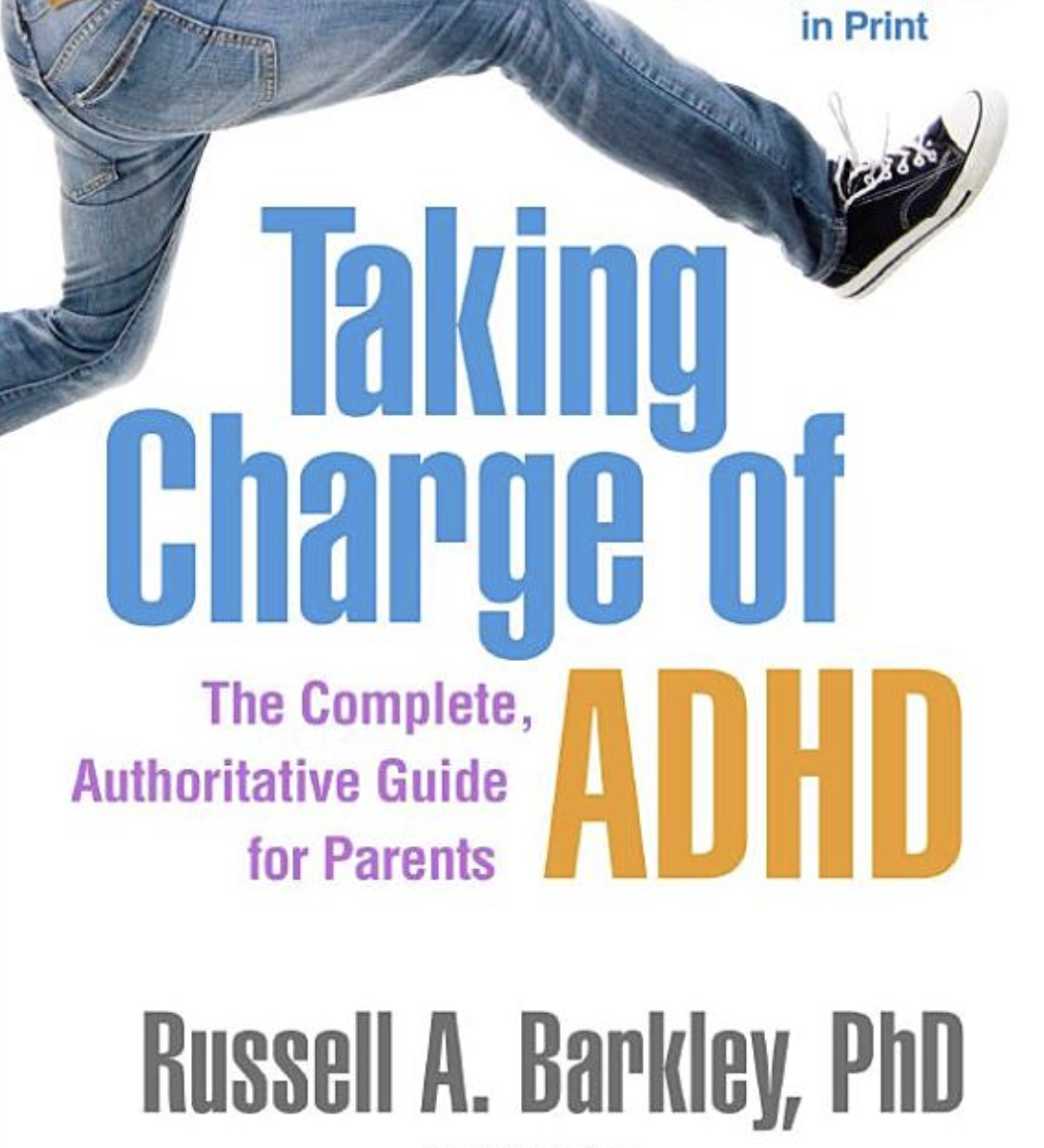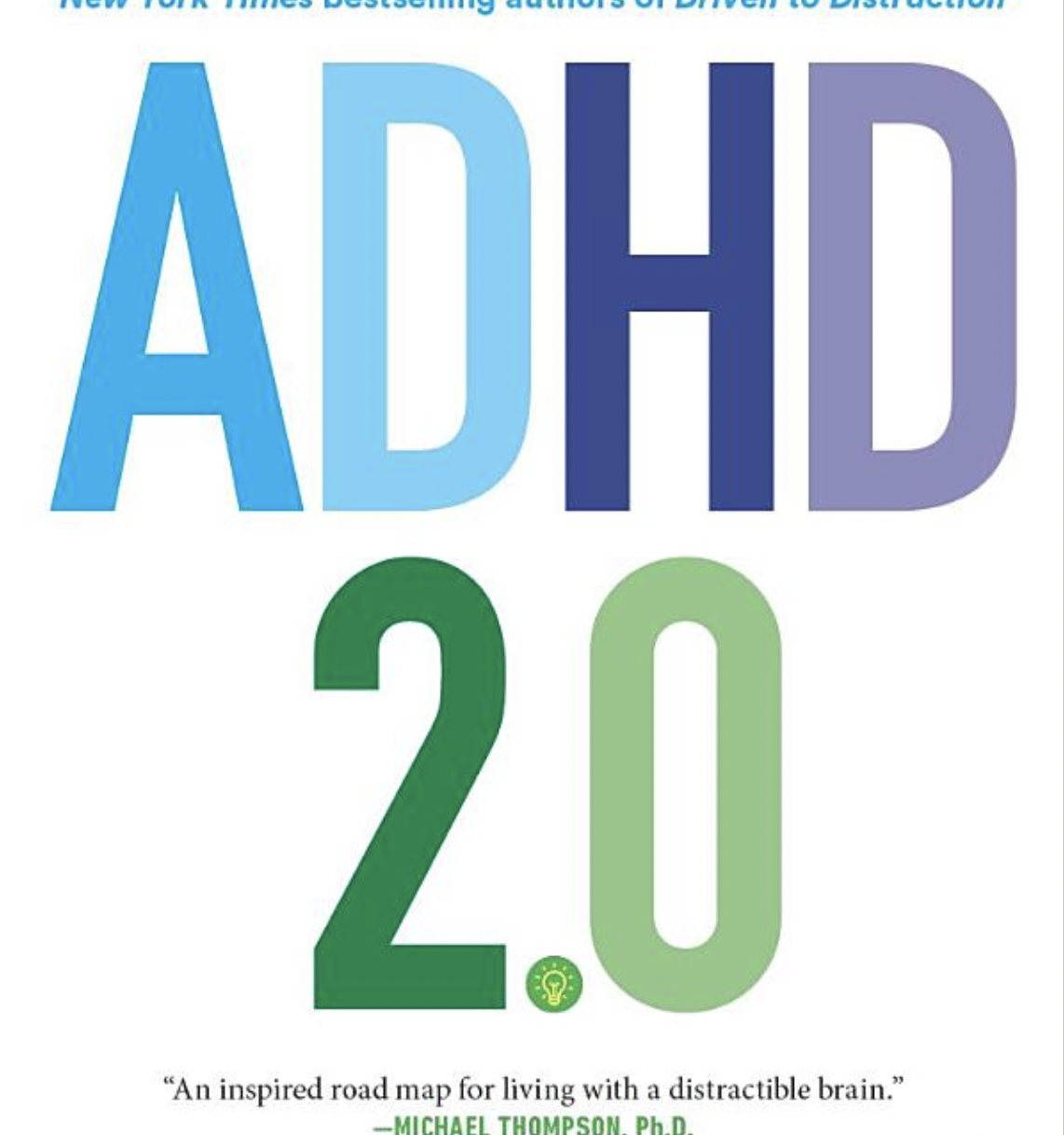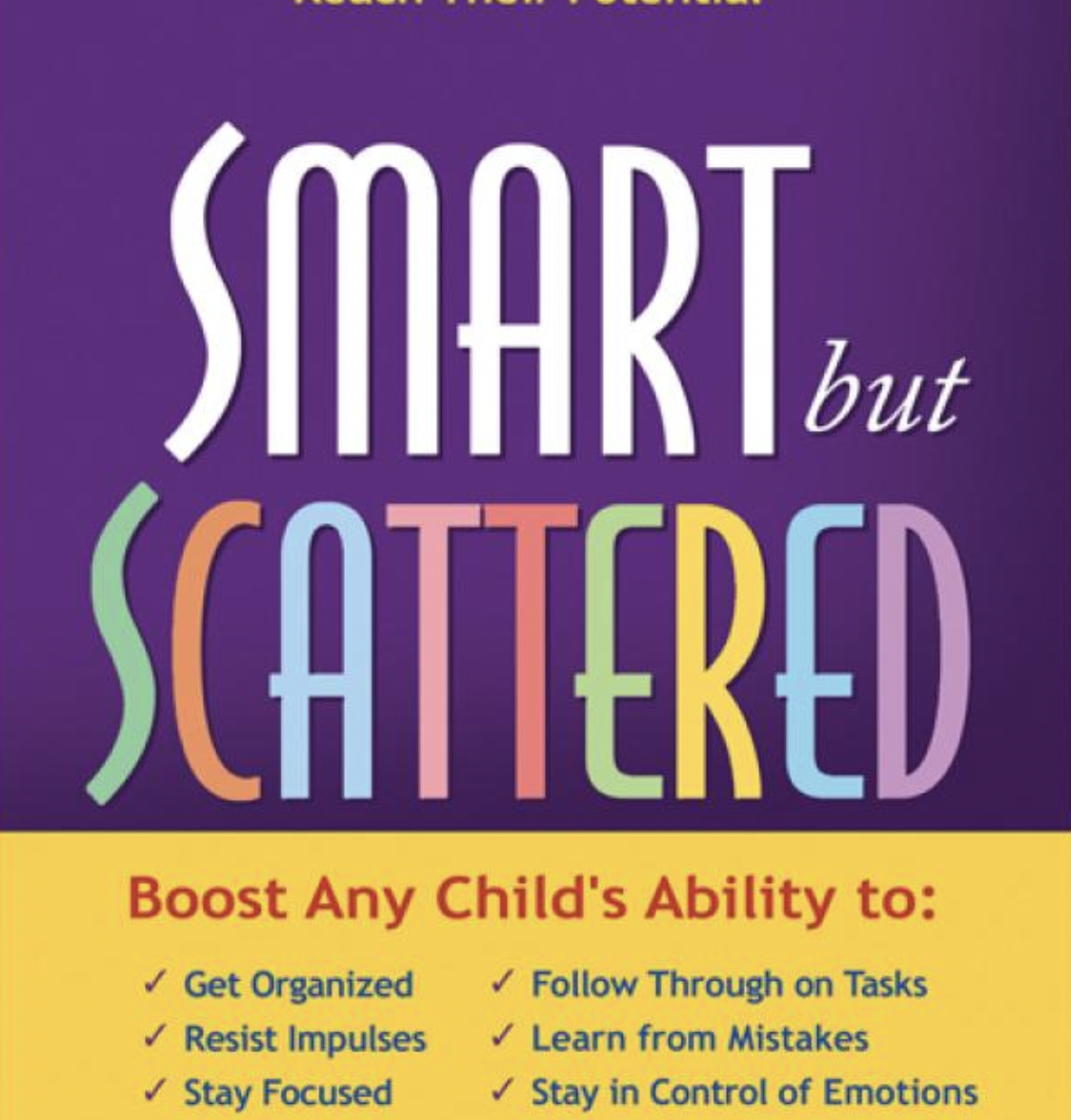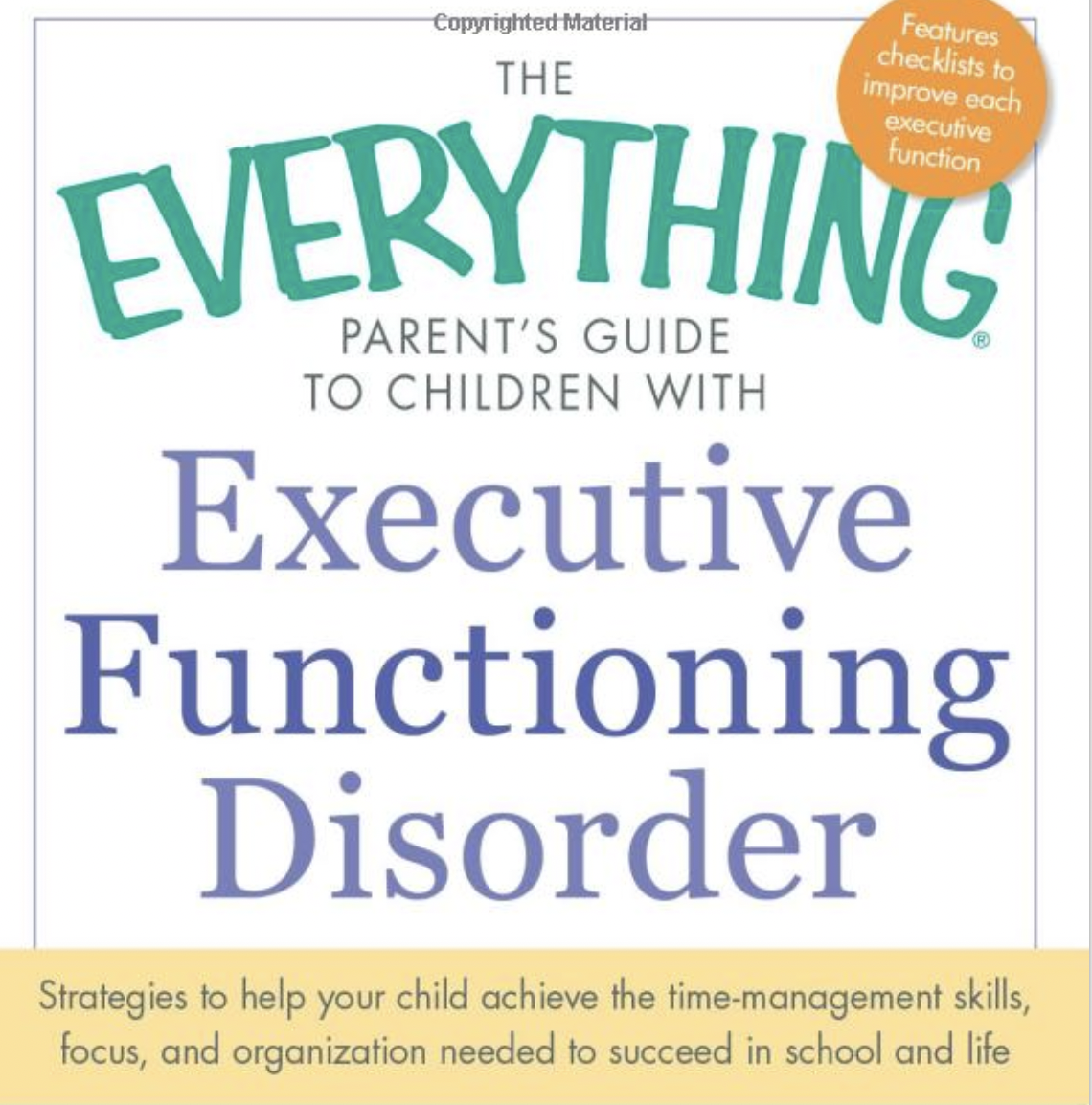Books on ADHD: Recommendations from Licensed Child Psychologists and Therapists
Below are the top book recommendations made by our Licensed Child Psychologists and Therapists! All of the books we share are evidence-based books that we have read, tested and fully support.
Taking Charge of ADHD: The Complete, Authoritative Guide for Parents
This book is a great resource for parents who want to learn more about about attention-deficit/hyperactivity disorder (ADHD) and its treatment. This book teaches parents to understand why kids with ADHD act the way they do, get an accurate diagnosis, work with school and health care professionals to find needed support, implement a proven eight-step behavior management plan, build your child's academic and social skills and restore harmony at home. Click here to learn more!
Taking Charge of Adult ADHD: Proven Strategies to Succeed at Work, at Home, and in Relationships
Author, Russell A. Barkley explains what ADHD looks like in adults, how to get an accurate evaluation, and how sufferers can manage symptoms and build the life they want. Readers get hands-on skill-building exercises plus clear answers to frequently asked questions about medications and other treatments. Dr. Barkley offers step-by-step strategies for overcoming challenges in specific areas, such as relationships, parenting, work, money management, and driving. Featuring the latest resources and medication facts, the second edition includes new or expanded discussions of mindfulness, emotional self-control, time management, building a successful career, maintaining a healthy lifestyle, and more. Click here to learn more!
ADHD 2.0: New Science and Essential Strategies for Thriving with Distraction--from Childhood through Adulthood
This book draws on the latest science to provide both parents and adults with ADHD a plan for minimizing the downside and maximizing the benefits of ADHD at any age. It offers an arsenal of new strategies and lifestyle hacks for thriving with ADHD, including finding the “right” kind of difficult and how to use these behavior assessments to discover the work, activity, or creative outlet best suited to an individual’s unique strengths. How to reimagine environment and what specific elements to look for—at home, at school, or in the workplace—to enhance the creativity and entrepreneurial spirit inherent in the ADHD mind. How to embrace innate neurological tendencies and take advantage of new findings about the brain’s default mode network and cerebellum, which confer major benefits for people with ADHD. How to tap into the healing power of connection. This book give tips for establishing and maintaining positive connection “the other Vitamind C” and the best antidote to the negativity that plagues so many people with ADHD. As inspiring as it is practical, ADHD 2.0 will help you tap into the power of this mercurial condition and find the key that unlocks potential. Click here to learn more!
Thriving with Adult ADHD: Skills to Strengthen Executive Functioning
Executive functioning skills―including focus, organization, stress management, and more―are critical to succeeding in all aspects of your life. Whether you've just been diagnosed with ADHD or you've lived with it your entire life, you know that developing these skills can be a challenge. Thriving with Adult ADHD offers information, assessments, and evidence-based exercises to help you build a mental skill set and take control of your ADHD.
Make real, sustainable changes with practical guidance and activities for sharpening your memory and attention, learning to plan and organize, strengthening your mental flexibility, enhancing your emotional regulation, improving your impulse control, and living your best life. Click here to learn more!
Driven to Distraction: Recognizing and Coping with Attention Deficit Disorder
Through vivid stories and case histories of patients—both adults and children—this book explores the varied forms ADHD takes, from hyperactivity to daydreaming. They dispel common myths, offer helpful coping tools, and give a thorough accounting of all treatment options as well as tips for dealing with a diagnosed child, partner, or family member. But most importantly, they focus on the positives that can come with this “disorder”—including high energy, intuitiveness, creativity, and enthusiasm. Click here to learn more!
Smart but Scattered: The Revolutionary "Executive Skills" Approach to Helping Kids Reach Their Potential
There’s nothing more frustrating than watching your bright, talented son or daughter struggle with everyday tasks like finishing homework, putting away toys, or following instructions at school. Your “smart but scattered” child might also have trouble coping with disappointment or managing anger. Drs. Peg Dawson and Richard Guare have great news: there’s a lot you can do to help.
The latest research in child development shows that many kids who have the brain and heart to succeed lack or lag behind in crucial “executive skills” -the fundamental habits of mind required for getting organized, staying focused, and controlling impulses and emotions. Learn easy-to-follow steps to identify your child’s strengths and weaknesses, use activities and techniques proven to boost specific skills, and problem-solve daily routines. Small changes can add up to big improvements--this empowering book shows how. Click here to learn more!
The Everything Parent's Guide to Children with Executive Functioning Disorder: Strategies to Help Your Child Achieve Time-management Skills in School and Life
This book is recommended for parents who want to learn what executive function difficulties look like and how you can help your child overcome these challenges. Being organized. Staying focused. Controlling impulses and emotions. These are some of the basic executive functioning (EF) skills children need to function and succeed as they grow. But what can you do if your child is struggling with one or all of these skills? Psychologist Rebecca Branstetter teaches you how to help improve the executive functions, including: task initiation, response inhibition, focus, time management, working memory, flexibility, self-regulation, completing tasks and organization. With checklists to help enforce skills and improve organization, The Everything Parent's Guide to Children with Executive Functioning Disorder is your step-by-step handbook for helping your child concentrate, learn, and thrive! Click here to learn more!
Parent-Teen Therapy for Executive Function Deficits and ADHD: Building Skills and Motivation
This book presents an innovative, tested approach to helping teens overcome the frustrating organizational and motivation problems associated with executive function deficits and attention-deficit/hyperactivity disorder (ADHD). The Supporting Teens' Autonomy Daily (STAND) approach uses motivational interviewing (MI) to engage teens and their parents in building key compensatory skills in organization, time management, and planning. Parent training components ease family conflict and equip parents to support kids' independence. Click here to learn more!
Organizational Skills Training for Children with ADHD: An Empirically Supported Treatment
This book presents an easy-to-implement intervention with proven effectiveness for children with ADHD in grades 3 to 5. Organizational skills training helps kids develop essential skill sets for organizing school materials, tracking assignments, and completing homework and other tasks successfully. Click here to learn more!
Additional Support
While these books offer valuable insights for managing ADHD in both children and adults, they may not cover every unique circumstance or challenge your family encounters. If you find that you need more specialized guidance or support beyond what these resources provide, consider reaching out to Tampa Pediatric Psychology. We offer a range of services focused on ADHD. These include comprehensive ADHD evaluations to assess attention, behavior, and executive functioning, as well as personalized treatment plans. We provide evidence-based therapies like cognitive-behavioral therapy (CBT) and parent training to help manage ADHD symptoms. Additionally, we offer ADHD coaching, which helps teens and young adults develop strategies to improve organization, time management, and academic performance. Our approach is holistic, addressing both the child’s needs and family dynamics. Contact us today for a consultation!









